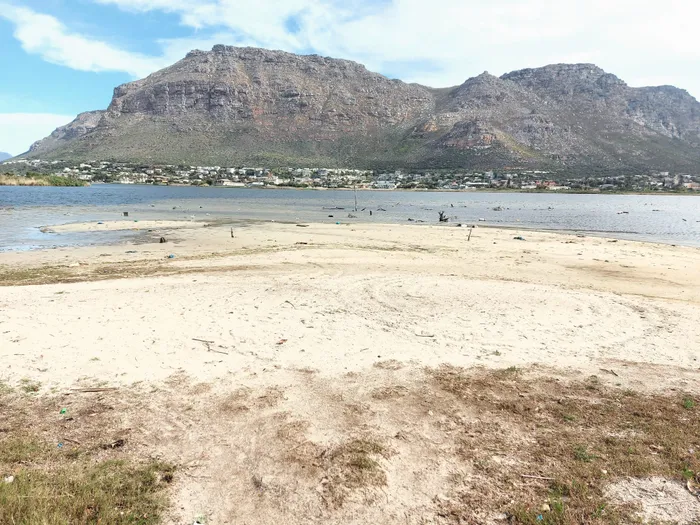Prison sewage leaks into estuary and river

Zandvlei Estuary has battled frequent sewage spills from numerous sources.
Breaks and blockages in the City’s sewer lines have led to sewage leaking from a
Pollsmoor prison dam into the Westlake River, and then down into Zandvlei Estuary.
The province’s environmental inspectors, or “Green Scorpions”, have now given notice to the City of Cape Town and Pollsmoor prison to clean up their act, or be fined.
The City and prison must also provide a detailed plan showing how they will fix the spills.
The Green Scorpions, which is part of the Department of Environmental Affairs and Development Planning (DEADP), issued the order, in terms of the National Environmental Management Act, after its inspectors followed up reports of sewage and other pollutants in Westlake River across from Pollsmoor prison.
According to the Green Scorpions, sewage from the prison flows through a maceration plant at Pollsmoor and from there into the municipal sewer system.
However, site inspections found breaks along the City’s sewer line that leaked faeces into one of two dams in the agricultural area in the grounds of Pollsmoor prison.
A mountain stream that runs into the Pollsmoor dam had added to the overflow, said Rudolf van Jaarsveldt, from DEADP.
Kirstenhof resident Gary Rowe said the river had deteriorated over the past 10 years, but that a year after laying official complaints nothing had been done to fix the sewage situation.
“The river in Kirstenhof is, in fact, not the major problem, but simply a conduit to what is now the main problem: Zandvlei,” he said.
Mr Rowe said the timing of testing was crucial because of the river flow. Tests should be taken during a sewage spill.
“If days pass before tests are done the pollutants will have already moved down into the Zandvlei Estuary and any results from the river may appear negligible, but the sewage would already have moved into Zandvlei.”
He said he was unimpressed with the City’s handling of the problem.
“This situation has been ‘monitored’ for nearly 10 years, and unless the sewerage systems on the Pollsmoor prison site are addressed as a matter of urgency, this problem will still be around and a lot worse in the next 10 years,” he said.
Kirstenhof and Environs Association chairwoman Carolynne Franklin said it was a recurring
problem.
“Residents are unhappy with the potential threats to their health. These water courses wind though Kirstenhof, Norfolk Park and Orchard Village, ultimately into False Bay. They are enjoyed by families with children, as well as dogs and wildlife.
“The failure of authorities to successfully address the issue of E coli and chemicals in the water is not acceptable. Water is supposedly tested on a regular basis, but no results are shared so that KERA can warn residents to stay away from the river and ponds,” Ms Franklin
said.
Last month Dr Kevin Winter, of the Future Water Institute, called for Zandvlei to be closed for all recreational activities because of the pollution.
The vlei remains open.
Dr Winter revealed that private testing of several water samples for the Peninsula Paddle, found E coli levels at 2419 colony forming units (cfu). The City, however said it could not comment on those results as it used a different system to test.
According to the government’s water-quality guidelines for recreational use, 500 cfu is “unacceptable” and greatly increases the chances for illness.
In the Coastal Water Quality Report released by the City on March 20, Muizenberg, Fish Hoek, Monwabisi and Beta Beach are listed among 31 polluted sites along Cape Town’s 307km of coastline. Almost half (45%) of the 49 testing sites in False Bay failed the minimum water quality guidelines in 2019.
Mayoral committee member for water and waste Xanthea Limberg said routine monthly sampling in the Kirstenhof area indicated periods of elevated E coli levels, likely linked to sewage overflows in the general catchment.
The Echo has asked repeatedly for the results of the City’s water-quality tests, but Ms Limberg has not provided them.
Department of Water and Sanitation spokesman Sputnik Ratau said tests at sampling points in the catchment areas showed the water quality in the Westlake River was not up to standard.
Lewies Davids, spokesman at Pollsmoor prison, said they had advertised a tender for maintenance of the dam.
“It will cost about R600 000. We only had two companies respond, we require three, so we’ll have to re-advertise,” he said.
Muizenberg resident Kevin Rack, of the Environmental Grey Warriors, said: “We judge a city and it’s people on the state of its rivers. We need to rethink our relationship and the value we place on nature, and introduce environmental accounting, where the cost to the environment is part of business accounting.”
Ms Limberg referred to the Pollsmoor situation as ‘’alleged leaks’’ and said it was unlikely that sewage from the Pollsmoor dam could affect Zandvlei, saying the E coli levels would drop due to natural die-off.
She said the City was investigating if there were any engineering issues in the sewer and stormwater networks upstream of the Pollsmoor dam.
The dam at Pollsmoor also received stormwater from further up the network, which could also be contaminated.
David Muller, chairman of the Zandvlei Trust, said the Pollsmoor prison sewage problem was not the only environmental problem facing Zandvlei.
“If this continues and nobody lifts a finger to stop the sewage leaks, we may soon be eating our last fish dish.